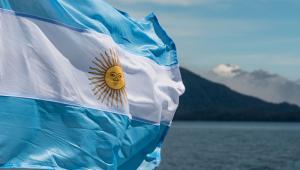This is because the Fund broke its own policy and lent billions of dollars to the South American country when its debt levels were unsustainable, according to the Jubilee Debt Campaign.
Argentina is currently struggling to avoid its ninth sovereign debt default and its government is trying to restructure its debts.
One year ago the IMF agreed its largest ever bailout deal of $56bn to the country, without its debts being restructured.
It did this to help the country pay back some of the $49bn it borrowed in 2016 and 2017, and when the peso fell in value in June 2018, from a variety of sources including bond sales and external lenders, the charity pointed out.
In 2016, the newly elected government of Mauricio Macri borrowed $12bn – part of the $49bn - to pay off debts to funds that had refused to take part in restructuring following Argentina’s early 2000s debt crisis, it added.
The campaigning charity, which advocates for the cancellation of unjust and impoverishing debt, said because these ‘vulture funds’ had bought the debt cheaply when it was in default, they made profits of more than 1,000%.
Jubilee Debt Campaign director Sarah-Jayne Clifton said that by breaking its own rules, the IMF has made “the same mistakes” as it has made with Greece, Ghana and Pakistan in the past.
Clifton said: “[Argentina’s debt crisis] was an inevitable consequence of the Macri government’s decision to pay off the vulture funds through extensive new borrowing, and of the IMF’s willingness to bailout reckless lenders with new loans.
“The IMF have a policy of not lending when debt levels are unsustainable, unless the debt is restructured.
“But last year they once again breached their own policy and lent Argentina $56bn, effectively helping to pay off previous reckless lenders.”
The Argentinian government has now announced it wants to restructure its debts, and has introduced currency controls in a bid to stop the peso tanking.
Clifton called on the IMF to “stop incentivising reckless lending and start requiring lenders to restructure debt before it issues bailout loans”.












